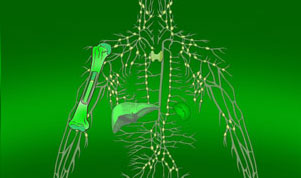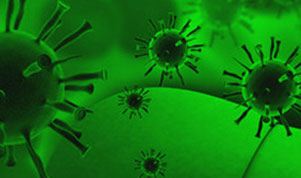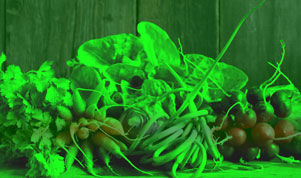Dietitian Advises

Diet and the Immune System
Like any fighting army, our immune system fights best with a full stomach*. Healthy immune system warriors need good and regular nutrition. It has long been known that people who live in poverty and are malnourished are more likely to contract infectious diseases. Although it is not certain that the increase in disease rates is directly due to immune system malnutrition. There are still few studies that directly link the effect of nutrition on the human immune system.
It has been established that the deficiency of various nutrients such as zinc, selenium, iron, copper, folic acid, vitamin A, vitamin B6, vitamin C or vitamin E disturbs the function of the immune system. If we suspect that our diet does not provide all the necessary nutrients, because it is probably not diversified enough, taking only vitamin and mineral preparations may not be sufficient. What can be done? Taking individual vitamins or nutrients in mega doses will not help here, because more does not necessarily mean better. Scientists are looking for different nutrients to strengthen the immune system. The group of such substances includes various compounds, for example high-molecular polysaccharides derived from mushrooms, e.g. betaglukan and/or lipo-polysaccharides derived from the cyanobacteria Spirulina platensis.
* "An army marches on its stomach" - a phrase attributed to Napoleon Bonaparte, during the siege of Toulon 1793. This saying, which attests to the importance of forces being well-provisioned, has been attributed to both Napoleon and Frederick the Great. It is recorded in English from the early 20th century.
Which foods boost the immune system?
A healthful, balanced diet plays a vital role in staying well. The following foods may help to boost the immune system:
Blackberries
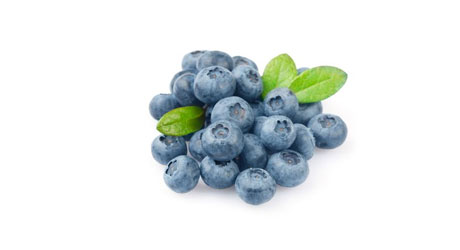
Blackberies (Lat. Rubus fruticosus) have been extensively used in herbal medicine. Blackberry plant (R. fruticosus) contains tannins, gallic acid, villosin, and iron; fruit contains vitamin C, niacin (nicotinic acid), pectin, sugars, and anthocyanins and also contains of berries albumin, citric acid, malic acid, and pectin. Anthocyanins are a group of plant substances classified as flavonoids, giving fruits that contain them a characteristic blue or dark blue color.
Blueberries in a bowl to boost immune system. Blueberries have antioxidant properties that may boost the immune system. Blueberries contain a type of flavonoid called anthocyanin, which has antioxidant properties that can help boost a person's immune system. A 2016 study noted that flavonoids play an essential role in the respiratory tract's immune defense system. Researchers found that people who ate foods rich in flavonoids were less likely to get an upper respiratory tract infection, or common cold, than those who did not. Anthocyanins are strong antioxidants and capture harmful free radicals in the body (free radical scavengers).
Anthocyanins show efficient effects on:
- Supporting the immune system, they have a beneficial effect in the treatment of colds
- Protect the body against cardiovascular diseases
- Have a protective effect on blood vessels
- Reduce the risk of cancer
Verma R, Gangrade T, Punasiya R et al.: → Rubus fruticosus (blackberry) use as an herbal medicine
Kursinszky L: → Anthocyanins monography in English, pdf file, 37 pages
Dark chocolate

Ciemna, czyli gorzka, czekolada, taka o zawartości kakao 70% i więcej, jest bogatym źródłem teobrominy. Ważne, aby była to ciemna, gorzka czekolada, a nie mleczna. Jej spożycie, jest nie tylko dobre dla naszej odporności, ale też przynosi rozliczne korzyści:
Czytaj więcej → korzyści spożycia ciemnej czekolady
Turmeric (Curcuma)
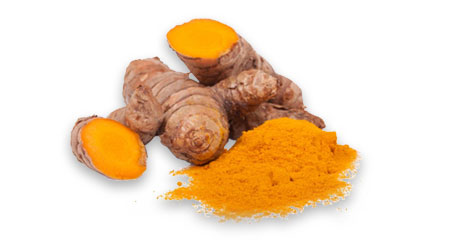
Turmeric is a yellow spice that many people use in cooking. It is also present in some alternative medicines. Consuming turmeric may improve a person's immune response. This is due to the qualities of curcumin, a compound in turmeric. According to a 2017 review, curcumin has antioxidant and anti-inflammatory effects. Turmeric side effects: Health benefits and risks Turmeric side effects: Health benefits and risks Learn more about the health benefits of turmeric.
More about turmeric health benefits:
Oily sea fish
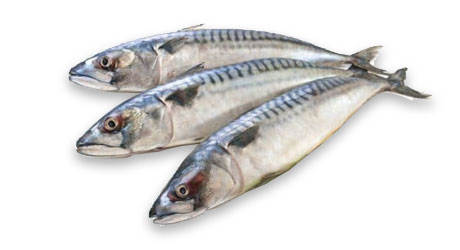
Salmon, tuna, pilchards, and other oily fish are a rich source of omega-3 fatty acids. According to a 2014 report, long-term intake of omega-3 fatty acids may reduce the risk of rheumatoid arthritis (RA). RA is a chronic autoimmune condition that occurs when the immune system mistakenly attacks a healthy part of the body.
- Omega 3 – Omega-3 fatty acids are composed of long carbon chains with at least 2 double (unsaturated) bonds between them. These are: alpha-linolenic acid (ALA), docosahexaenoic acid (DHA) and eicosapentaenoic acid (EPA). Mammals cannot synthesize essential omega 3 fatty acids and, like vitamins, must be supplied through the diet. They have many beneficial effects on the human body*, including: have a protective effect on the immune system.
- Shark liver oil – its properties are mainly due to the content of alkylglycerols and squalene.
- Cod liver oil – is a concentrate of oil from the liver of Atlantic cod and other fish from the cod family. Cod liver oil owes its properties to the content of vitamin D and A, which are needed especially during the growth period of the body, i.e. in children and adolescents.
Broccoli
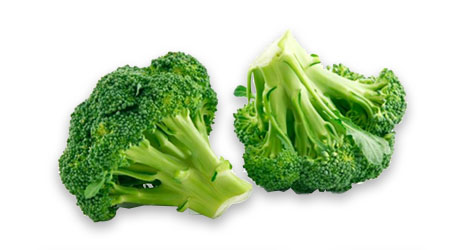
Broccoli is known as a wonderful and tasty vegetable that provides dozens of nutrients. They belong to the group of edible green vegetables of the cabbage family. Their consumption brings numerous health benefits.
Broccoli is a great source of vitamins K and C, a good source of folate (folic acid) and also provides potassium, fiber. Vitamin C – builds collagen, which forms body tissue and bone, and helps cuts and wounds heal. Vitamin C is a powerful antioxidant and protects the body from damaging free radicals.
Read more → Health benefits of broccoli
Read more → Monograph on broccoli extract
Yam
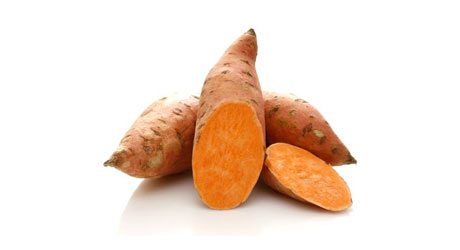
Sweet potatoes, Lat. name Ipomoea batatas, are a floury, sweet root tuber. You can eat the vegetable peeled or with the skin on. The leaves are also edible. Botanically, sweet potatoes belong to the Convolvulaceae plant category and not to the Solanaceae family like potatoes.
Niektóre rośliny powojowate (jest ich ponad 1800 gatunków) mogą zawierają alkaloidy podobne do tych znajdujących się w LSD. Głównym środkiem psychoaktywnym jest ergina, czyli amid kwasu D-lizergowego znany również jako LSA. W składzie są też inne substancje, takie jak: izoergina czyli amid kwasu L-lizergowego, lizergol, izolizergol, chanoklawina, elymoklawina, peniklawina czy ergonowina. Ich występowanie ma istotny wpływ na układ nerwowy oraz ma również stymulujące działanie na układ odporności.
Czytaj więcej → Korzyści zdrowotne spożycia słodkich ziemniaków
Słodkie ziemniaki monografia → Ipomoea batatas monograph plik pdf, j. ang. 24 strony
Spinach

Consumption of spinach may have a beneficial effect on the immune system because it provides many needed nutrients and antioxidants, including:
- Flavonoids – this is a group of organic compounds (over 7,000 of them) with a yellow color and exhibiting antioxidant properties. The most important are quercitin, luteolin, apigenin, geinistein, gallate and anthocyanins.
- Carotenoids – this is a group of organic compounds that give plants their red, orange and yellow color. They are also found in green vegetables such as spinach. Biologically, they are precursors of vitamin A.
- Vitamin C – more info on page Immulina
- Vitamin E – more info → The Role of Vitamin E in Human Health and Some Diseases
Vitamin E is, first of all, a potent antioxidant. Together with beta-carotene and vitamin C, it protects against the effects of free radicals and lipid peroxides, protects cells against oxidative damage and delays the aging process. Vitamin C and vitamin E are necessary for the proper functioning of the immune system. Studies have shown that flavonoids may help prevent colds in otherwise healthy people.
Ginger
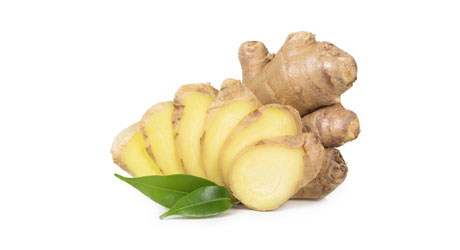
Ginger, a tropical plant related to turmeric and cardamom, produces a pungent, sweet-tasting root. Herbal tea aficionados steep freshly grated ginger in hot water to make tea, and various cuisines incorporate fresh or dried ginger into both sweet and savory recipes. Consult your doctor before using ginger to treat a medical condition.
Ginger root's immune-system benefits may help protect brain function, according to a study published in the August 2012 issue of the journal "Neuropharmacology." In the tissue culture study, 6-shogaol, one of the active constituents in ginger, prevented damage to microglia, important support cells in the brain, by inhibiting production of several immune-signaling molecules, including prostaglandins and interleukins. The ginger extract also inhibited genes that, when activated, lead to production of cyclo-oxygenase-2, or COX-2, a pro-inflammatory enzyme that is the target of non-steroidal anti-inflammatory drugs. Researchers concluded ginger shows good potential as a natural supplement for prevention of some neurodegenerative diseases, such as Alzheimer's disease and multiple sclerosis.
Prewencja raka – niedawno opublikowane badania wykazały, że podawanie imbiru może hamować niektóre postacie raka. (E J of Cancer Prevention; 2012, Dec.)
A study published in the July 2011 issue of the "Official Journal of the Balkan Union of Oncology" found that ginger may help inhibit some forms of cancer. Ginger provides non-toxic benefits that activate the immune system to prevent cancer from developing, kill existing cancer cells and prevent tumors from spreading, according to researchers. In a study published in the December 2012 issue of the "European Journal of Cancer Prevention," individuals at high risk for colorectal cancer showed significantly decreased inflammation in the colon after taking 2 grams of ginger daily for 28 days. Ginger inhibited the inflammatory enzyme COX-1, but did not affect levels of another key inflammatory enzyme.
Działanie przeciw-wirusowe – wykazano badaniach na hodowlach komórowych w stosunku do wirusa HRSV (Human Respiratory Syncytial Virus) (J of Ethno-pharmacology; 2012, Nov.)
Działanie przeciw-bakteryjne – połączenie imbiru, czosnku i limonki jest skuteczne przeciwko niektórym opornym szczepom bakterii. (Ann. of Clin. Microb. and Antimicrobials, 2011, Mar.)
Read more → Ginger root and immunity
European Medicines Agency → Community herbal monograph on Zingiber officinale Roscoe, rhizoma
Garlic
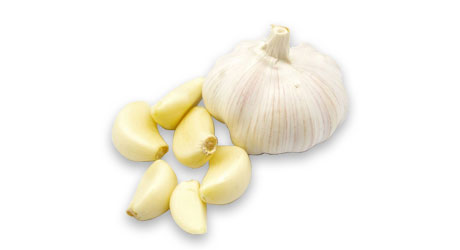
The benefits of garlic to health have been proclaimed for centuries; however, only recently have Allium sativum and its derivatives been proposed as promising candidates for maintaining the homeostasis of the immune system. The complex biochemistry of garlic makes it possible for variations in processing to yield different preparations with differences in final composition and compound proportion. In this review, we assess the most recent experimental results, which indicate that garlic appears to enhance the functioning of the immune system by stimulating certain cell types, such as macrophages, lymphocytes, natural killer (NK) cells, dendritic cells, and eosinophils, by mechanisms including modulation of cytokine secretion, immunoglobulin production, phagocytosis, and macrophage activation. Finally, because immune dysfunction plays an important role in the development and progress of several diseases, we critically examined immunoregulation by garlic extracts and compounds isolated, which can contribute to the treatment and prevention of pathologies such as obesity, metabolic syndrome, cardiovascular disorders, gastric ulcer, and even cancer. We concluded that A. sativum modulates cytokine secretion and that such modulation may provide a mechanism of action for many of their therapeutic effects.
European Medicines Agency → European Union herbal monograph on Allium sativum L., bulbus 7 stron
Arreola R, Quintero-Fabián S et al. Immunomodulation and Anti-Inflammatory Effects of Garlic Compounds J Immunol Res. 2015; 2015: 401630.
Red bell pepper
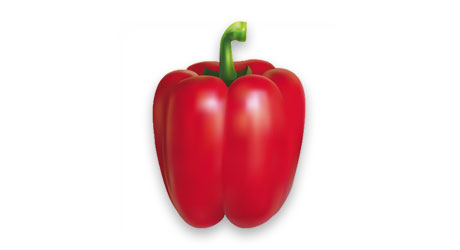
Red bell pepper (Lat. Capsicum annum) jest kolejnym bogatym w witaminę C środkiem do zwalczania choroby przeziębieniowej. W pracy opublikowanej w 2013 roku w Harvard Health Letter wykazano, że codzienne spożycie 200 mg witaminy C zmniejsza o połowę ryzyko zachorowania na przeziębienie oraz skraca o 8 % czas trwania objawów u dorosłych a o 14 % u dzieci.
Czerwona papryka dostarcza również estry kwasów ferulowego i synapinowego, czyli związków fenlowych. Składniki fenolowe roślin zawsze stanowiły przedmiot szczególnego zainteresowania badaczy, jako związki o szczególnej reaktywności, chemicznej i enzymatycznej, polegającej m.in. na efektywnej neutralizacji reaktywnych form tlenu, uznanych za czynniki szkodliwe dla normalnej fizjologii komórki.
Badania wykazakły również korzystny wpływ kapsaicyny z ostrej czerwonej papryki na układ odporności. W pracy pt. Modulation of select immune responses by dietary capsaicin opublikowanej w Int J Vitam Nutr Res. 1998;68(2):114-9. Yu R. et al. wykazali istotne immunomodulujące właściwości kapsaiciny na modelu zwierzęcym.
Antioxidant activities of different colored sweet bell peppers (Capsicum annuum L.) → J Food Sci. 2007 Mar;72(2):S98-102
Green tea
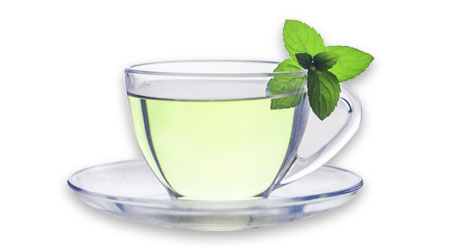
Nie tylko zielona herbata, ale również herbata imbirowa i herbata z korzenia żeń-szenia korzystnnie oddziałują na układ odproności. Nie tylko zielona herbata, ale również herbata imbirowa i herbata z korzenia żeń-szenia korzystnnie oddziałują na układ odporności. Zielona herbata jest nie tylko polecana jako jedna z najlepszych herbat wspomagających utratę masy ciała, ale jest również znakomitym środkiem do zwalczania przeziębienia. Zawiera flawonoidy*, antyoksydanty które wspomagają odporność i wykazują właściwości przeciwzapalne. W niedawno opublikowanej pracy w magazynie Biochem Pharmacol. 2011 December 15; 82(12): 1807–1821 wykazano, że katechina – antyoksydant obficie występujący w zielonej herbacie, wykazuje istotne właściwości przeciwbakteryjne i przeciwwirusowe i może zwalczać bakterie wywołujące chorobę przeziębieniową oraz wirusy grypy. Dodatkowe innformacje → Community herbal monograph on Camellia sinensis – Europejska Agencja Medyczna
Kefir, yoghurt and other probiotic foods
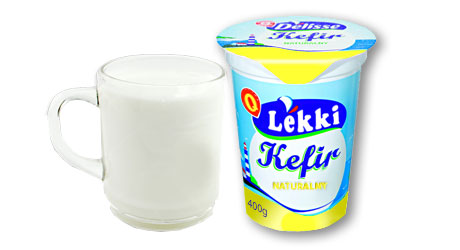
The digestive tract is one of the most microbiologically active ecosystems, which plays a key role in the gut health.
The Effects of Kefir and Kefir Components on Immune and Metabolic Physiology in Pre-Clinical Studies: A Narrative Review
- 6. Sweet potatoes Sweet potatoes are rich in beta carotene, a type of antioxidant that gives the skin of the potatoes its orange color. Beta carotene is a source of vitamin A. It helps to make skin healthy and may even provide some protection against skin damage from ultraviolet (UV) rays.
7. Spinach Spinach may boost the immune system, as it contains many essential nutrients and antioxidants, including: flavonoids carotenoids vitamin C – vitamin E Vitamins C and E can help support the immune system. Research also indicates that flavonoids may help to prevent the common cold in otherwise healthy people.
- 8. Ginger People use ginger in a variety of dishes and desserts, as well as in teas. According to a review, ginger has anti-inflammatory and antioxidative properties and is likely to offer health benefits. However, more research is necessary to confirm whether or not it can effectively prevent illness.
- 9. Garlic Garlic cloves. Garlic may help to prevent colds. Garlic is a common home remedy for the prevention of colds and other illness. One review looked at whether taking garlic supplements containing allicin reduced the risk of getting a cold. The group of participants taking a placebo had more than double the number of colds between them than those taking the garlic supplements. However, the researchers concluded that more research is necessary to determine whether or not garlic can help to prevent colds.
- 10. Green tea Green tea contains only a small amount of caffeine, so people can enjoy it as an alternative to black tea or coffee. Drinking it may also strengthen the immune system. As with blueberries, green tea contains flavonoids, which may reduce the risk of a cold.
- Pestki słonecznika
12. Sunflower seeds Sunflower seeds can make a tasty addition to salads or breakfast bowls. They are a rich source of vitamin E, an antioxidant. In the same way as other antioxidants, vitamin E improves immune function. It does this by fighting off free radicals, which can damage cells.
- Migdały
13. Almonds Almonds are another excellent source of vitamin E. They also contain manganese, magnesium, and fiber. A small handful or a quarter of a cup of almonds is a healthful snack that may benefit the immune system.
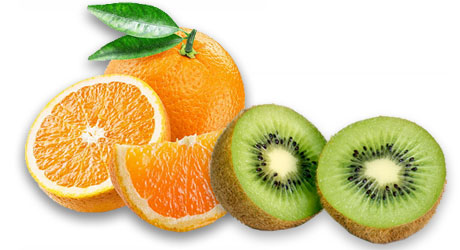
- Oranges and/or kiwi fruit
14. Oranges or kiwifruit (kiwis) Oranges and kiwis are an excellent source of vitamin C, which is the vitamin that many people turn to when they feel a cold developing. While scientists are still not sure exactly how it helps, vitamin C may reduce the duration of common cold symptoms and improve the function of the human immune system.
15. Red bell pepper For people trying to avoid the sugar in fruit, red bell peppers are an excellent alternative source of vitamin C. Stir-frying and roasting both preserve the nutrient content of red bell peppers better than steaming or boiling, according to a study on cooking methods. -->


















